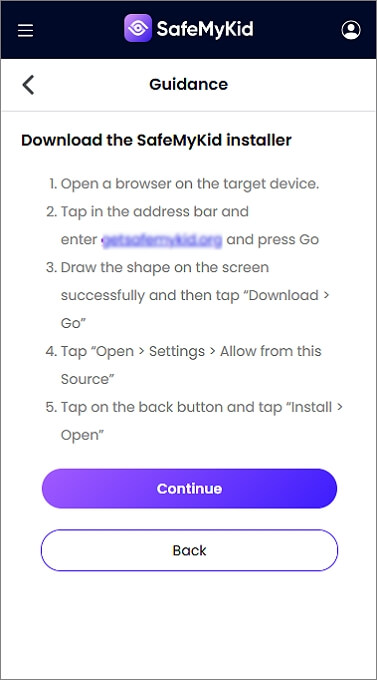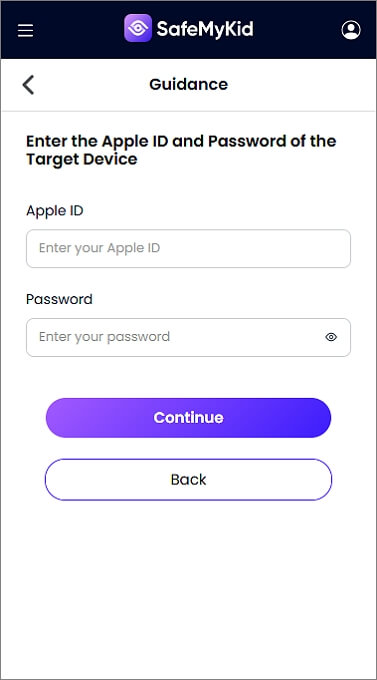How to Find Out if Your Partner is Cheating Online: 5 Signs You Should Know

Online cheating is becoming more common. If your partner suddenly guards their phone, acts distant, or behaves suspiciously online, you might have a reason to be concerned.
But how can you find out if your partner is cheating online? In this guide, we’ll walk you through five key signs to find out if your partner is cheating online.

What Is Online Cheating?
Online cheating isn’t just about exchanging messages—it can involve emotional or even romantic connections formed through digital platforms. While there may be no physical contact, the betrayal can be just as painful as traditional infidelity.
In many cases, emotional bonds formed online can create a deep emotional disconnection between partners in real life.

Some examples include:
- Flirting or having emotional conversations with someone online.
- Using dating apps or secret social media accounts.
- Engaging in private chats with disappearing messages.
While online cheating may not involve physical interaction, it can be just as damaging as a real-world affair. Now, let’s explore the signs that can help you detect online infidelity.
5 Signs to Find Out If Your Partner Is Cheating Online
Here are five key signs to help you determine if your partner might be cheating online. Pay attention to sudden changes in digital habits and secrecy.
1. Changes in Online Behavior
If your partner becomes overly protective of their phone, changes passwords, or spends an unusual amount of time online—especially late at night—they might be hiding something. A sudden shift in online habits can indicate secretive conversations or digital infidelity.

Some red flags include:
- Late-night texting or excessive phone use.
- Deleting browsing history or clearing chat logs frequently.
- Being overly defensive about their online activity.
If these behaviors seem out of character, it’s worth investigating further.
2. Unusual Secrecy with Devices
While maintaining privacy is normal, excessive secrecy—such as hiding screens, using incognito mode frequently, or abruptly locking devices when you approach—can be a red flag. If your partner avoids sharing basic phone activities, they might be concealing something suspicious.

Here are a few things to watch for:
- They frequently change passwords and refuse to share them.
- They disable notifications or turn their phone screen away.
- They suddenly start using private browsing or incognito mode.
If your partner is going out of their way to hide their digital footprint, you may need to dig deeper.
3. Emotional Detachment & Reduced Communication
If your partner is emotionally invested in someone online, they may start withdrawing from conversations, showing less affection, and avoiding deep discussions.
A noticeable decline in communication and emotional connection could indicate that their attention is focused elsewhere.

Look for:
- A sudden decline in affection or intimacy.
- Less interest in deep conversations or quality time.
- Increased irritability or defensiveness when asked about their behavior.
This emotional shift can indicate they’re prioritizing someone else emotionally or romantically.
4. Suspicious Activity on Social Media & Messaging Apps
Social media is a common place for online affairs, and suspicious activity can include secretive messages, sudden profile changes, increased privacy settings, or frequently deleting chats.
If your partner hides their online interactions or becomes defensive about social media use, it may be a red flag.

Some warning signs include:
- Secretive conversations on apps like Snapchat or WhatsApp.
- Flirty comments on other people’s posts.
- Sudden changes in privacy settings or hidden friend lists.
If you notice these behaviors, it might be time to confront the issue.
5. Financial Clues & Unexplained Expenses
Financial records can sometimes expose online cheating. Look for unexplained expenses, frequent payments to unknown individuals, or subscriptions to dating apps.
Sudden secretive spending, hidden transactions, or gifting someone anonymously may indicate they are financially supporting an online affair.

Look out for:
- Subscriptions to dating apps or paid messaging services.
- Unexplained gifts or transactions sent to unknown recipients.
- Unusual activity on PayPal, Venmo, or Cash App.
If you spot suspicious transactions, ask your partner about them directly.
Using an Advanced Tool to Find Out if Your Partner is Cheating Online
If you want concrete proof of online cheating, SafeMyKid is one of the most effective solutions available. This advanced monitoring tool allows you to track online activities discreetly, helping you uncover the truth without violating privacy in an unethical way.

With SafeMyKid, you can monitor messages, check browsing history, and track social media interactions without the need for intrusive spying.
Unlike unreliable third-party apps, SafeMyKid provides legitimate and secure monitoring features, making it a trustworthy choice for concerned partners.
Whether your partner is using messaging apps, social media, or hidden accounts, SafeMyKid helps you gather evidence in a responsible manner.
Key Features of SafeMyKid to Find Out if Your Partner Is Cheating Online
SafeMyKid offers advanced monitoring tools to help uncover online infidelity discreetly and effectively. Key features of SafeMyKid include:
- Monitors chat activity on apps like WhatsApp, Snapchat, Instagram, and Facebook Messenger.
- Tracks browsing history, even if the history is deleted or cleared.
- Shows real-time location and phone usage reports to detect unusual patterns.
- Accesses deleted messages and hidden conversations on social media apps.
- Captures screenshots remotely, providing visual proof of online interactions.
- Detects dating app activity, alerting you if they sign up or engage with platforms like Tinder or Bumble.
- Logs call history and contact details, helping you identify unknown or frequent contacts.
- Provides alerts for suspicious keywords, notifying you when flagged words or phrases appear in messages.
These features ensure you have all the necessary tools to monitor digital interactions and uncover potential online affairs without being detected.
How to Find Out if Your Partner Is Cheating Online
SafeMyKid provides an easy and discreet way to uncover online cheating by tracking digital activity in real time. Here’s how you can set it up based on your partner’s device:
How to Find Out if Your Partner is Cheating Online on Android
Step 1. Sign Up
Create an account on the SafeMyKid website.

Step 2. Install and Set Up SafeMyKid App on Android
Download and install the app on the target device. Follow the on-screen instructions to enable necessary tracking permissions.

Step 3. Find Out if Your Partner is Cheating Online on Android
Log in to your SafeMyKid dashboard to view reports on messages, calls, social media interactions, and browsing history.

How to Find Out if Your Partner is Cheating Online on iPhone
Step 1. Sign Up
Register on the SafeMyKid platform.

Step 2. Input the Target iPhone’s iCloud Details
Use your partner’s iCloud credentials to sync their device data.

Step 3. Find Out if Your Partner is Cheating Online on iPhone
Access activity logs, deleted messages, and location history via the SafeMyKid web portal.

SafeMyKid provides real-time insights into your partner’s phone activity, giving you a clear picture of their digital interactions without relying on guesswork.
With features like message monitoring, browsing history tracking, and social media activity reports, it helps you detect any suspicious behavior. By using SafeMyKid, you can make informed decisions based on real data rather than assumptions.
Limitations of Third-Party Spy Apps
Some people turn to other spy apps besides SafeMyKid, but many have limitations:
- Require jailbreaking or rooting, which voids device warranties.
- Often gets detected and uninstalled by security apps.
- Risk legal consequences if used without consent.
Unlike these unreliable options, SafeMyKid provides legitimate and effective monitoring without violating privacy laws.
What to Do If You Suspect Your Partner is Cheating on You Online

Discovering online infidelity can be emotionally overwhelming, but handling the situation with clarity and composure is crucial. Here’s what to do next:
Gathering Evidence & Having the Conversation
Before confronting your partner, ensure you have solid proof to avoid misunderstandings or false accusations. Steps to take:
- Observe patterns over time rather than reacting impulsively. Look for consistent behaviors that indicate dishonesty.
- Document suspicious activity by taking screenshots, saving chat logs, or noting unusual online interactions.
- Approach the conversation calmly without jumping to accusations. Express your concerns and allow your partner to explain.
If your partner becomes defensive or unwilling to talk, consider seeking support from a therapist or relationship counselor to navigate the situation effectively.
FAQs on How to Find Out If Your Partner Is Cheating Online
Online infidelity can be just as damaging as physical cheating. While definitions of betrayal vary, emotional connections, secretive messages, and digital affairs can break trust in a relationship.
1. Can online cheating be considered real infidelity?
Yes, online cheating can be just as serious as physical infidelity. While there may not be physical contact, the emotional connection, secrecy, and deception involved can severely damage trust in a relationship.
2. How can I differentiate between innocent online interactions and cheating?
The key difference is secrecy and intent. If your partner is hiding conversations, deleting messages, or acting defensive when asked about their online activity, it may indicate something more than just casual interaction.
3. What are the psychological effects of online cheating on a relationship?
Online cheating can lead to emotional distance, lack of trust, and feelings of betrayal. The cheated-on partner may experience anxiety, low self-esteem, and emotional distress, while the cheating partner may develop guilt, secrecy, and detachment.
4. Are there legal risks associated with monitoring a partner’s online activity?
Yes, privacy laws vary by country and state. Monitoring someone’s device without their consent can be illegal in many places.
However, using legal monitoring tools like SafeMyKid, which offers ethical tracking options for parental and security purposes, can help avoid violating privacy laws.
5. How long does it typically take to confirm online cheating?
The time it takes to confirm online cheating depends on how secretive your partner is and the methods you use to investigate.
Some people may notice signs within days or weeks, while others might take months to gather enough evidence. Tools like SafeMyKid can help speed up the process by providing real-time insights into online activity.
6. Should I inform my partner if I find out they are cheating online?
This decision depends on your personal boundaries and the severity of the situation. If you value honesty, it’s best to address the issue directly. Some partners may be willing to work on rebuilding trust, while others may deny or justify their actions.
Conclusion
Do you want to know how to find out if your partner is cheating online? Online cheating is a real concern, and the warning signs can often be subtle and easy to overlook.
If you need solid proof, SafeMyKid offers a secure and effective way to monitor online activity. By SafeMyKid, you can uncover the truth and make informed decisions about your relationship.



